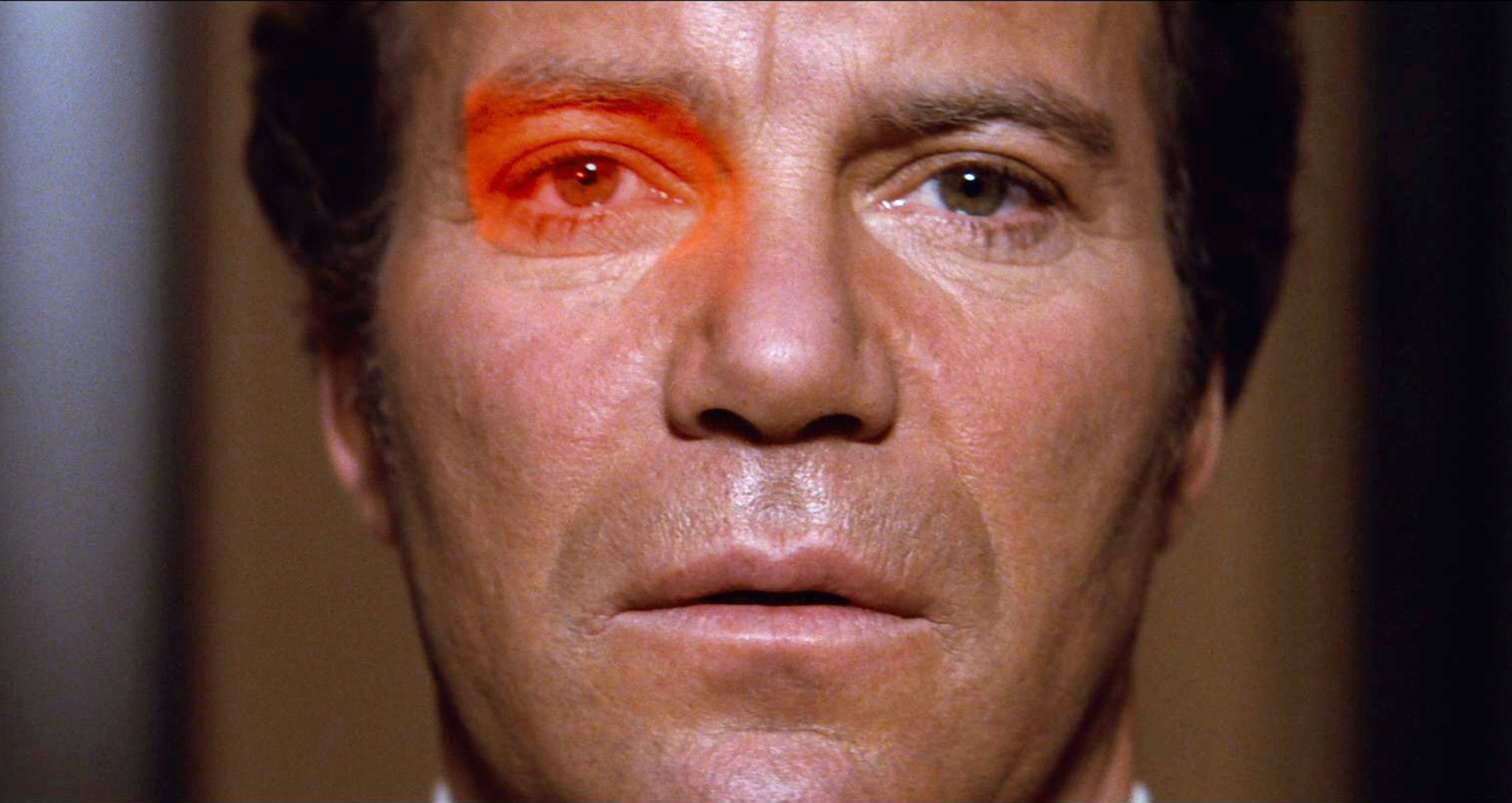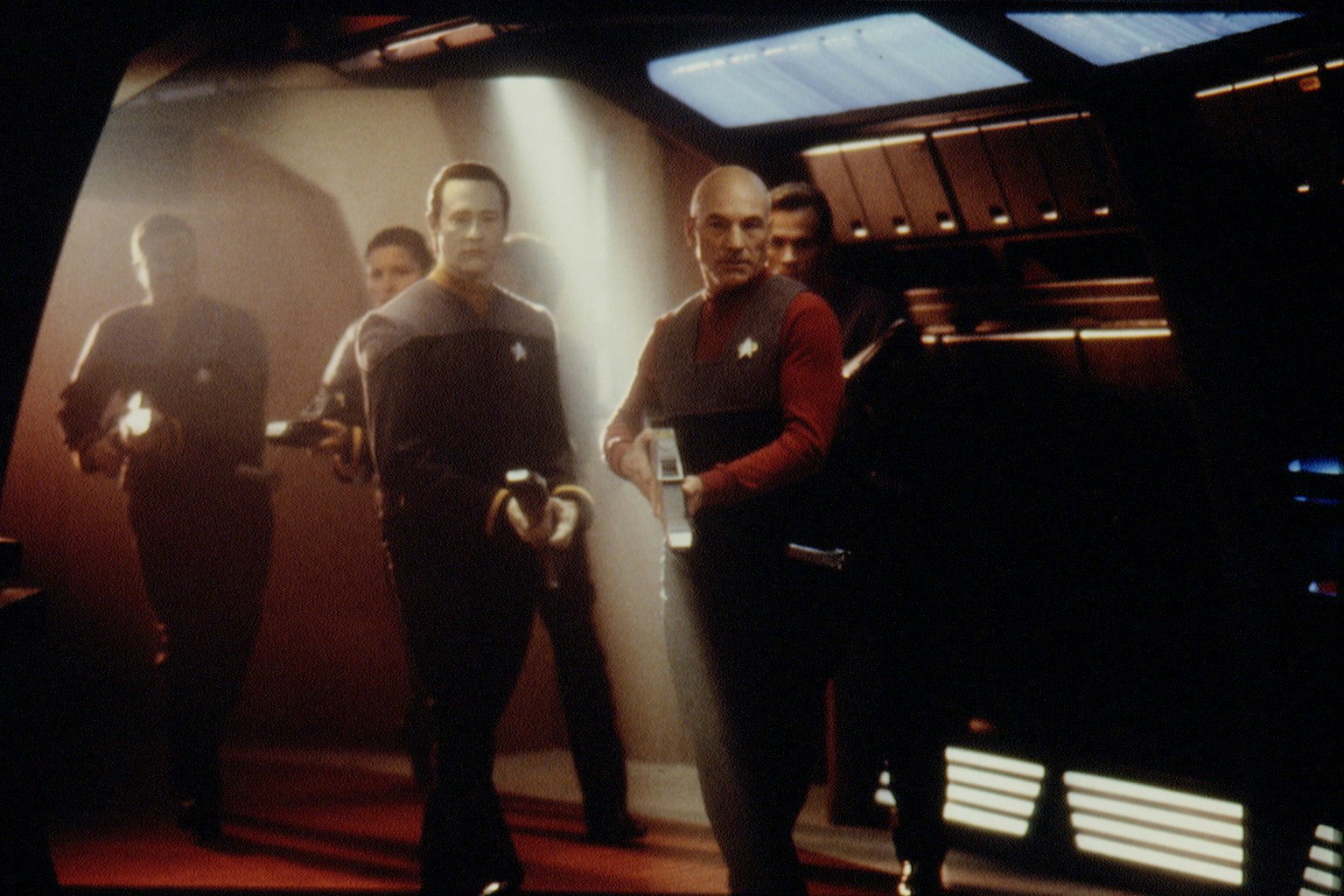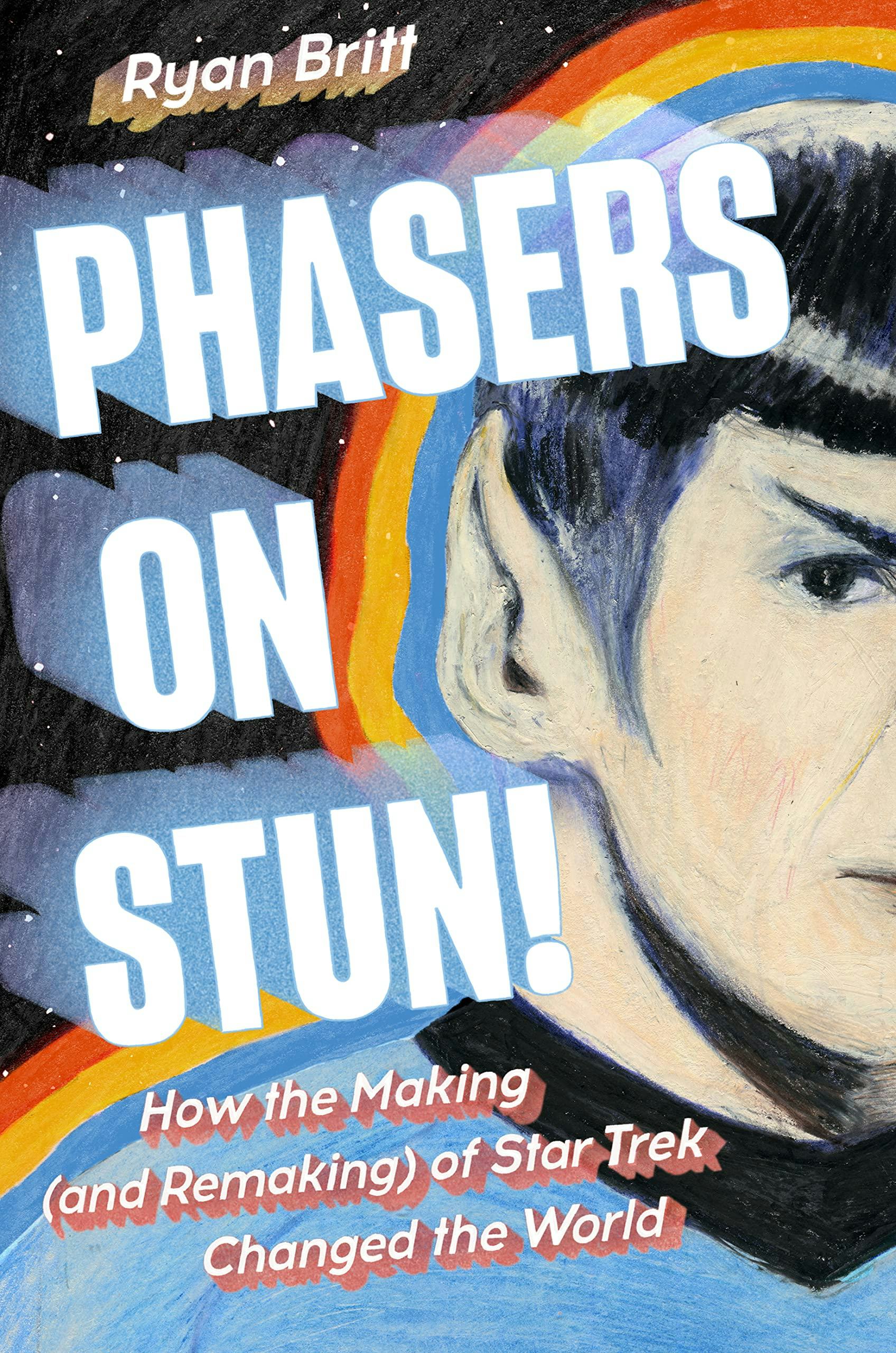
Most science fiction movie franchises that get past six films are fairly impressive. Way back before the MCU blew up in 2012 or the Star Wars sequels began in 2015, sci-fi film franchises generally didn’t get into the double-digits. In fact, the seemingly immortal Planet of the Apes franchise just now released its 10th film overall. Star Wars has 11 theatrical films, but five of those all came out in the last nine years. This summer, the Alien franchise will release its ninth film in very fragmented continuity, which funnily enough, has the subtitle Romulus, a term that was arguably popularized by the scrappiest science fiction franchise of them all — Star Trek.
While it's tempting to think of Star Trek as primarily a TV sci-fi empire (there are 11 distinct shows, with a 12th in production) the fact is, as a film franchise, Star Trek is not only massive but also extremely durable. And as of right now, every single Star Trek movie — from 1979 to 2016 — are all streaming on Paramount+. Here’s why even someone with a casual interest in science fiction or Star Trek should binge these movies ASAP.
In 1979, a TV series getting turned into a major motion picture was not common. Before Star Trek: The Motion Picture, the best examples of TV shows having feature film versions were the 1954 Dragnet and the 1966 Adam West-led Batman. What made Star Trek: The Motion Picture significant is that not only was it a TV series-turned-movie, but it was also released a decade after the show had been canceled. On top of this, it was a major aesthetic redesign for the entire concept. While Star Trek: The Original Series was known for its over-the-top colors and melodramatic action-adventure-oriented directorial choices, The Motion Picture was a contemplative epic, directed by cinema legend Robert Wise, with a graceful score from Jerry Goldsmith. For any of its faults, Star Trek: The Motion Picture wasn’t an attempt to emulate Star Wars. If anything, it was the exact opposite.
And from 1979, each Star Trek movie — to some degree — has been a departure from the previous installment. While the films sometimes struggled to translate the smaller-stakes brilliance of the episodes of the various series into big tentpole events, there’s no denying that each Star Trek film is utterly dissimilar to all other Star Trek films. With 1982’s crowd-pleasing favorite The Wrath of Khan, director Nicholas Meyer solidified a nautical flavor and mashed it up with a revenge thriller. Directing two back-to-back films, The Search for Spock and The Voyage Home, Leonard Nimoy created one movie about a spiritual journey and another film about environmentalism. By the time you get to Meyer’s other Trek film, The Undiscovered Country, you’re dealing with a deeply political film with smart commentary on the collapse of the Soviet Union, and the dangers of nationalism in general.
And that only covers through 1991! The four films spanning The Next Generation crew’s jump to the big screen are equally diverse in themes and concepts. While 1994’s Generations explores ideas of mortality and addiction, 1996’s First Contact reimagined the Trek revenge film with the hero as the person at fault. And though Insurrection (1998) and Nemesis (2002) are generally considered some of the weakest films in the franchise, the performances from guest villains F. Murray Abraham and Tom Hardy are outstanding.

In 2009, J.J. Abrams famously rebooted the Trek franchise with a new film simply titled Star Trek. While this film still creates a fair amount of controversy in hardcore Trekkie fandom circles, it is probably the best J.J. Abrams movie ever, and holds up extremely well as a great contemporary blockbuster, 15 years after its release. Star Trek Into Darkness, its 2013 sequel, is probably one of the least-loved Trek films of all time, but that doesn’t mean that Benedict Cumberbatch’s take on Khan isn’t fantastic. Nor, can anyone ignore the brilliant spectacle of the film in general. But it was 2016’s Star Trek Beyond that provided one of the most well-balanced Trek movies since The Wrath of Khan. Helmed by Fast and Furious alum Justin Lin with a script co-written by Lin, Simon Pegg, and Doug Jung, Into Darkness’ much-superior follow-up movie showed a deep, deep love for the flavor of The Original Series.
Since 2016, there have been no new Star Trek films in theaters. Instead, the franchise has expanded significantly in the medium of streaming TV, while various plans for a new Star Trek movie have remained stalled for more reasons than even Data could recall off the top of his head. Late 2024 will see the release of the first direct-to-streaming Trek movie — the highly anticipated sci-fi spy flick Star Trek: Section 31, starring Michelle Yeoh. After that, a new Trek “origin story” movie, directed by Toby Haynes, is expected sometime in 2026, just in time for Star Trek’s 60th anniversary.
Whether or not that movie will actually beam down is unclear. But, until then, if you want to experience a wide variety of sci-fi adventures, set in a cozy, yet compelling future, you can’t do much worse than to binge all the Trek movies, starting at the very beginning.
All 13 Star Trek feature films are streaming on Paramount+.
Phasers on Stun!: How the Making — and Remaking — of Star Trek Changed the World








